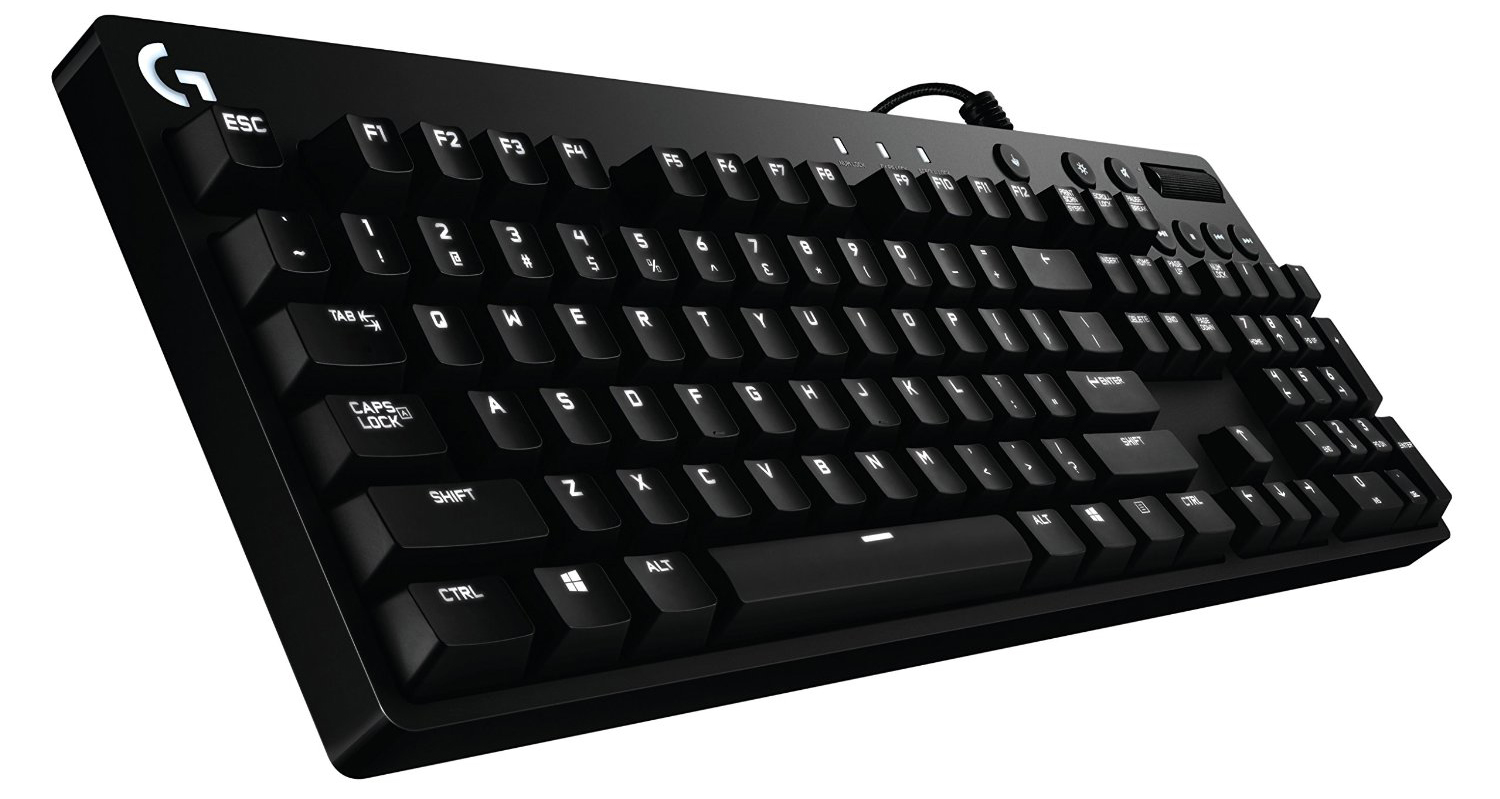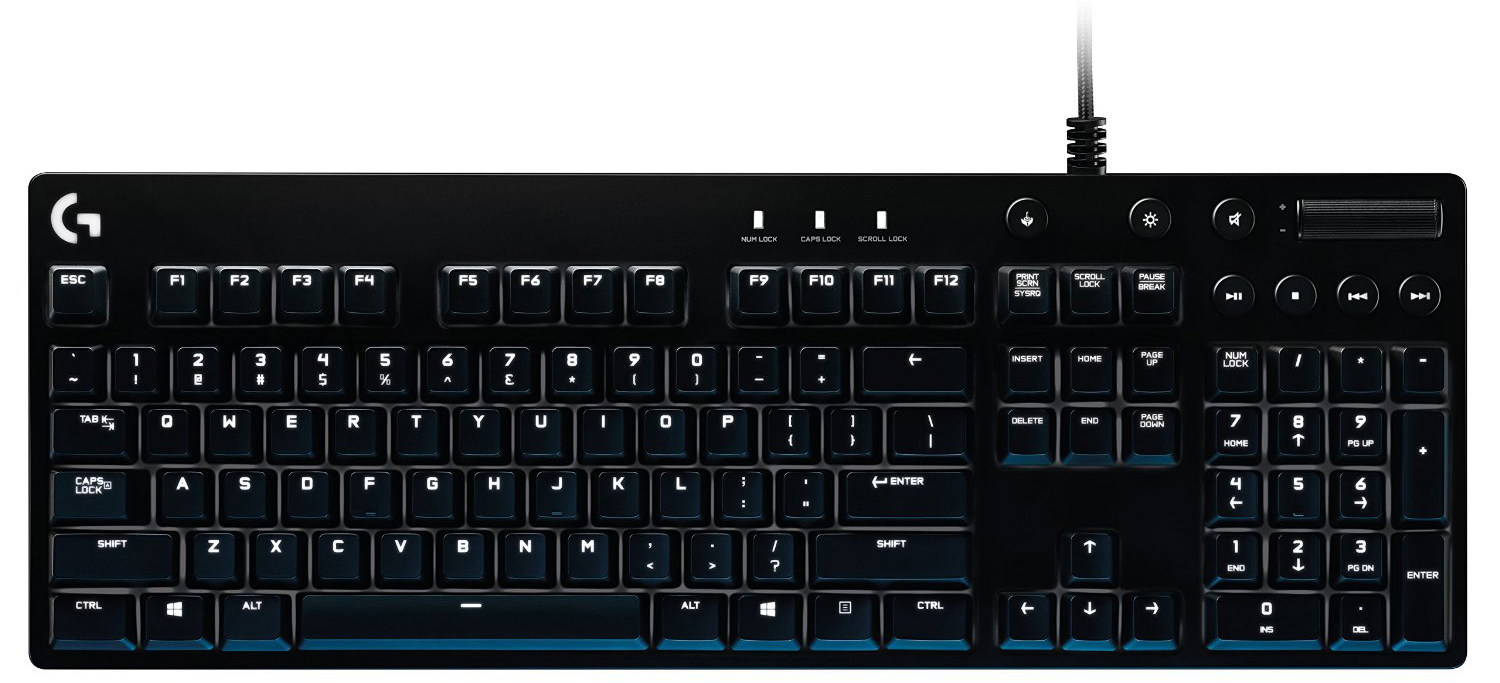Tom's Guide Verdict
The Logitech G610 Orion doesn't offer a ton of options, but what's there is clean, functional and excellent for both typing and gaming.
Pros
- +
Authentic Cherry MX keys
- +
Cheaper than full RGB keyboards
- +
Discrete media control buttons
Cons
- -
No Blue or Green options
- -
Lighting effects seem superfluous
- -
Feels like a stripped-down G810
Why you can trust Tom's Guide
Never let it be said that Logitech doesn't listen to its fans. The company's last few gaming keyboards have made use of its proprietary Romer-G mechanical switches. While they're fine switches, if you didn't like the feel, you were out of luck. Enter the Logitech G610 Orion ($120) — a no-frills keyboard with minimal backlighting and real Cherry MX switches. The Orion doesn't offer a ton of options, but what's there is clean, functional and excellent for both typing and gaming.
Design
The Orion's appearance is almost identical to Logitech's earlier G810 Orion Spectrum keyboard. Whereas the Orion Spectrum features full RGB lighting and Romer-G switches, however, the Orion has white backlighting and either Cherry MX Red or Brown keys. This creates a dignified, straightforward design with no distractions. It's a full-size keyboard with discrete media controls, and looks equally at home in an office or in a gaming corner.

Like the G810, the G610 measures 17.5 x 6.0 x 1.4 inches and weighs 2.8 pounds. This puts it on the smaller end of full-size keyboards, which makes it suitable for desks of almost any size. On the flip side, it doesn't have any wrist support, so keep in mind that you may need to augment it if you're prone to wrist pain.
MORE: Best Gaming Accessories
Keys
The biggest advantage of the Orion over Logitech's other recent keyboards is the inclusion of authentic Cherry MX keys. There's no denying that Romer-G switches are comfortable, responsive and long-lasting, but nothing beats the real deal. Cherry has built its reputation by providing top-notch mechanical switches that provide an optimal experience, whether you prefer your keys to be quiet or noisy, effortless or resistant.

I reviewed the Cherry MX Red model, which is silent, has a low actuation and almost no resistance. Those who opt for the Brown keys will get a quiet model that provides a little more resistance, and an actuation that occurs halfway down the press. Either way, the keys are superb, registering keystrokes effortlessly and providing just the right amount of feedback.
On a TypingTest.com evaluation, I scored an adjusted 119 words per minute on the Orion with five errors, versus 121 words per minute on a standard Dell office keyboard with seven errors. The numbers are similar, but the Orion was much more comfortable.
The performance was superb when I was leaping across the battlefields of Hoth as Luke Skywalker
The only problem is that between the Romer-G and Cherry MX switches, Logitech has yet to provide a resistant, clackety switch like a Cherry MX Blue or Green. Many gamers (and typists) prefer the rapid-fire machine-gun noise and feel of resistant, noisy switches. Reds, Browns and Romer-Gs are all soft-touch keys, which simply won't rub some gamers the right way.
Aside from that, the Orion features standalone media keys and a volume rocker, which are always a nice touch.
Features
The Orion runs on the Logitech Gaming Software. While the software is excellent, as always, you probably won't use it that much. The Orion has no extra macro keys and no RGB lighting, so macro creation and profiles are of limited use. You can replace regular keys with macro commands, but if that's your primary concern, there are keyboards that better suit your needs.
As far as illumination goes, you have a few options, although the Orion is not going to replace the Logitech's full RGB lineup anytime soon. You can select a number of preprogrammed effects, like a wave of light across the keyboard, or keys that light up whenever you strike them. You can also program which keys light up and which stay darkened, which can help highlight, for example, the WASD keys in a first-person shooter, or the number keys in a massively multiplayer online game. The brightness is also adjustable. It's a modest number of options, but the software does a good job controlling them.
The biggest advantage of the Orion over Logitech's other recent keyboards is the inclusion of authentic Cherry MX keys
Beyond that, you can change the functions on the F1 through F12 keys, and replace them with macros if you like. You can also enable a Game Mode, which lets you disable key combinations like Alt-Tab, which could accidentally end a game session at precisely the wrong moment.
MORE: The Best Gaming Desktops Available Now
Performance
Cherry MX Keys are excellent in any keyboard, and the Orion is no exception. Whether you want to play FPS, strategy, action/adventure or MMO, the responsive keys make it fantastically easy to control the action onscreen.

To test the Orion's facility with different types of games, I ran it through Star Wars: Battlefront, StarCraft II: Legacy of the Void, Rise of the Tomb Raider and Star Wars: The Old Republic. The performance was superb, whether I was leaping across the battlefields of Hoth as Luke Skywalker or making daring jumps across chasms as Lara Croft.
The usual caveat for full-size keyboards applies, however. Since the Orion has no extra macro keys, users who rely on them (for hardcore MMOs, as an example) may need a larger, more expensive keyboard. Since the function keys can double as macro keys, however, moderate- to high-level play is still more than possible.
Bottom Line
The Orion is a keyboard with no fancy extras, for better and worse. Features like RGB lighting go by the wayside, facilitating a lower price tag and more streamlined software. The G610's dignified design and discrete media buttons are just as delightful as those of the G810, and the Cherry MX keys are, to make the unavoidable pun, the cherry on top.
Still, Logitech missed a huge opportunity by not offering Blue or Green switches, and the lighting effects feel a little superfluous in grayscale. The Orion acquits itself well in a crowded field of gaming keyboards, but it's also a bit plain. Whether you see that as an advantage or a drawback will depend on your tastes and budget.
Marshall Honorof is a senior editor for Tom's Guide, overseeing the site's coverage of gaming hardware and software. He comes from a science writing background, having studied paleomammalogy, biological anthropology, and the history of science and technology. After hours, you can find him practicing taekwondo or doing deep dives on classic sci-fi.

